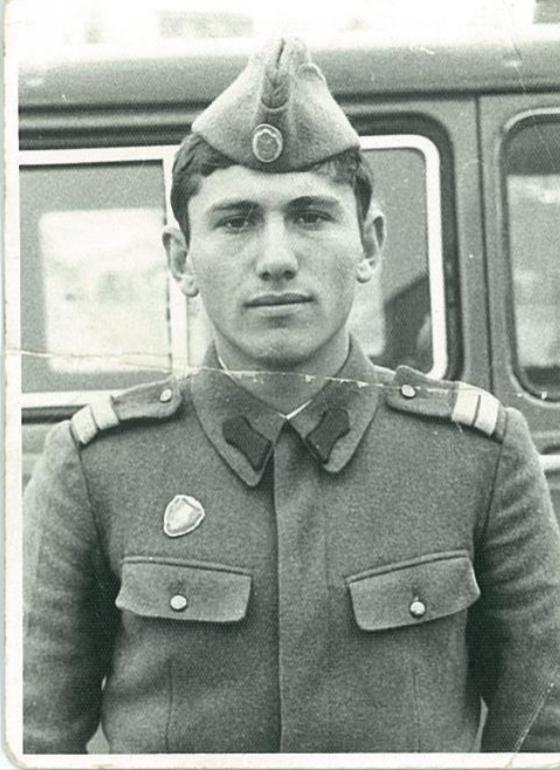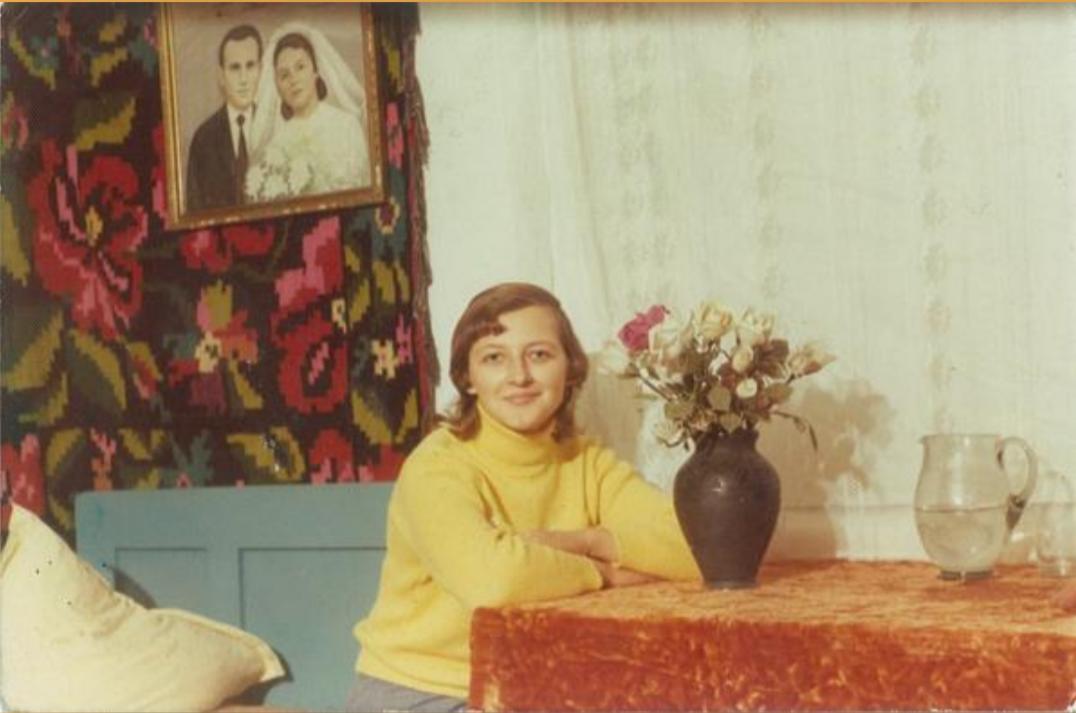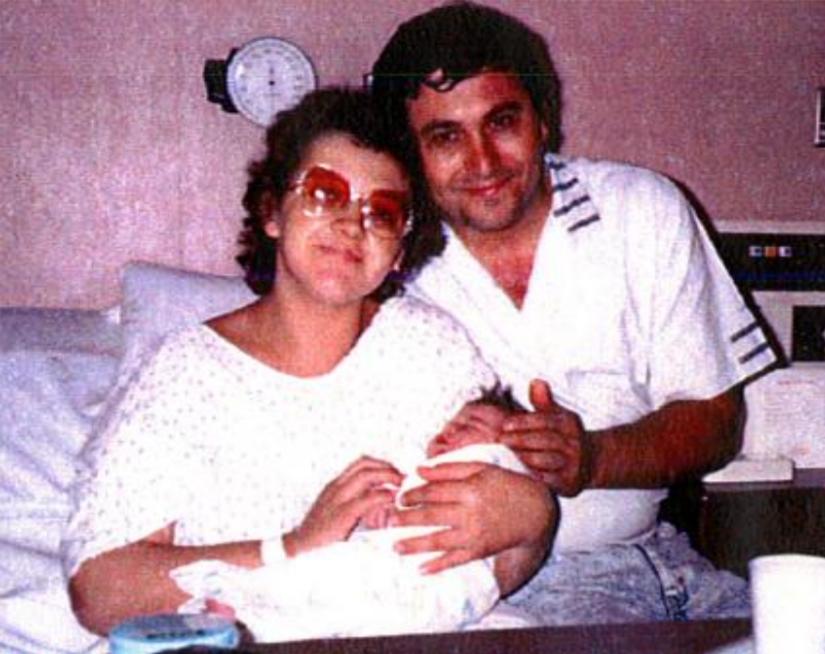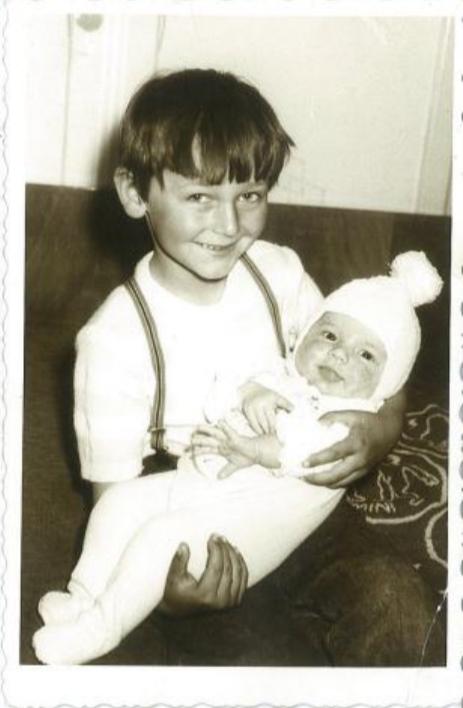
11 minute read
From Communism to Freedom
By Simona Irimiciuc
“Communism”: a word that we’ve heard many times in our history books and in the news, but most people never really understand what it truly means to live in a state of communism. My family does, and if it were not for their journey, namely my father’s journey to America, I would never have had the freedom to achieve all of my accomplishments I have today. His sacrifices and bravery gave me the opportunity to experience the simple luxuries in life, to travel abroad as a student ambassador, and to attend and graduate Arizona State University at the top of my class. This is my father’s story.
My father’s and mother’s names are Dorel and Cornelia Irimiciuc. They are both from Suceava which is in Bucovina, Romania. My family’s story began twenty-seven years ago in our home country of Romania, located in Southeastern Europe. At the time, Nicolae Ceausescu was the head of the state and the leader of the Romanian Communist Party. Since 1967, his regime was increasingly brutal and rigid, spanning over several decades. The rules Ceausescu imparted were restricting and demoralizing with the threat of grave punishment, even death, for those who did not comply.
Ceausescu’s regime compensated for Romania’s substantial growth in debt by taking away water, electricity, and food from the citizens of Romania. Romanians were made aware that electricity would be turned off two nights a week for five hours. Even so, the communists did not abide by the already-restrictive schedule, and people spent significantly much more time in the silent darkness than they were promised. While most homes had wells within walking distance, apartment complexes, on the other hand, only had access to water two to three hours per day, and during that short time, people filled up their bathtubs, pots and pans, and anything else they could find. They later heated up the water for bathing and cooking. The good meat was exported, leaving chickens’ and pigs’ neck, head, feet, tail, and internal organs on Romania’s store shelves for purchase.
Unlike the freedoms we experience in the United States, the communist government controlled Romania from grocery shopping and media to religion, marriage, and contraception. Families routinely woke up at early hours of the day so that they could wait in extensive lines for basic foods like rice, milk, oil and sugar. Only 2.2 lbs. (one kilogram) of flour, oil, and sugar was allowed per person each month. Not many households had the luxury of a television, but the few that did only received one channel, which portrayed Ceausescu and his wife Elena in a false light. The news praised the dictator and his wife as if they were gods, highlighting all of their accomplishments and visits around Europe, which strategically kept the people of Romania naïve to actual governmental practices.
My family is a people of faith and practiced the religion of Baptist Christianity. The communist government did not agree with any form of Christianity, considering those who practiced it a minority class. Some churches were demolished, and Christians were forced to pray behind closed doors in secrecy. My family and other Christians were discriminated against, making it difficult for them to find jobs and earn decent grades in school, no matter how hard they worked. Due to the governmental desire to increase the birth rate, only women over the age of 45 and who had at least four children were eligible for contraception and abortion, and there were penalties against unmarried people and couples without children.
A sense of secrecy and distrust clouded the country of Romania, especially among those who wanted to speak against the regime. Regular citizens were paid or granted favors to become spies for the communists. Friends, fellow church-goers, and even family betrayed each other in secrecy, including those who did not believe in the regime but needed the money or specific favor. Living in a society of fear and terror, my father was determined to provide a better life and future for our family.
In Romania, my father Dorel started working as a mechanic at the age of sixteen. He worked at the mechanic shop for twelve years amidst constant, random shortages of water and electricity, often with no heat during the bitter cold winters of Romania. My dad was greeted at work every day by a sign that hung on the wall with big red letters that read: courage in our home village of Ipotesti. Although it was forbidden and extremely dangerous to cross the border, many Romanians tried to escape from their homes during the oppressive regime.
From America, Uncle Mircea sent beautiful presents – luxuries that no one had ever seen before! Family and friends had a childish joy over clothing, perfume, sunglasses and watches. My father wore hats and t-shirts with the words “U.S.A.” or “America” printed on them to work with great pride. Naturally, such an act was frowned upon; however, he continued on with the hopes that the land of freedom would one day be his and his family’s as well.
Through all the hardships they faced in Romania and signs of hope from across the Atlantic Ocean, my parents’ minds were made up – they wanted to go to America. They first tried to leave Romania legally through the American Embassy in the capital of Bucharest, Romania, but they were told that the wait would be a minimum of five years. On their way out of the embassy, a strange man approached them and took their picture. My parents were frightened, and as they walked away from this man, my mother Cornelia swiftly looked back and saw that he was following them. This incident made my parents realize that they were under scrutiny and had to be extremely cautious.
My mom’s brother, my Uncle Mircea Hostiuc, was the first in our family to escape to America, the freedom land. It was unheard of at the time; he was only 19 and escaped with two of his close friends. Their bravery planted further seeds of
In the meantime, my mom’s cousin, my Uncle Daniel, worked as an engineer in a factory near the border, and he was secretly building a fourpassenger submarine to help people escape. He spent his nights secretly in his garage and kept it from his own family. He built the machine in pieces and stored them in different places until it was ready to be assembled. When my parents received word that the submarine was ready, they knew it was time.
My father created an escape plan with three friends from church. They would cross the Danube River into Yugoslavia. The four men drove to the city of Orsova, a place on the Danube Shore. From there, they planned to cross the river in the submarine.
When they arrived in Orsova, ahead of them was already a family who was trying to escape with the help of Daniel’s submarine. Sadly, the family was caught, and Daniel was sent to prison for three months, where the conditions were laborintensive and inmates were treated like animals. My father and his friends were forced to turn back. Once my dad returned to his place of work, he was arrested and discovered that security forces had followed the men and listened in on their phone calls for months leading up to their attempted escape. He and his friends were put on house arrest and had to report their every move. My father was only allowed to go to work and home, and under no condition was he allowed to leave the city of Suceava.
The failure on his first attempt did not weaken my father’s determination to escape. He rounded up two friends – Cornel, who went the first time, and Doru, who was his coworker and very best friend. Since my dad was unable to contact Daniel directly when he was released from prison, my mother and Doru’s wife, Viorica, took a train to meet Daniel in person and discuss what needed to be done. When my mother and Viorica returned and shared all of the information with their husbands, the men planned a second attempt.
The three men trained for months to be in good physical condition, worked hard and made further sacrifices to save money, and on July 9th, 1984, the journey began. My dad pretended to be ill. He received permission to go to Iasi, a nearby city, to see a doctor. The doctor was a friend and in on the escape plan. The men used an elaborate plan to meet in Iasi by train. From the train stop, the men could see the river, which was wider than they had imagined, and Cornel changed his mind and turned back. two best friends decided to meet was empty. Tragically, Doru never came. My dad waited for several hours before someone noticed he was a fugitive and turned him in.
My father and Doru continued on. They took a train to the capital, Bucharest, where my dad called home to let my mom know he would be “having surgery,” as they had planned. This bought him a couple days from work, so he could begin the escape.
When they arrived in Orsova, they met my Uncle Daniel, who agreed to take them to the Danube Shore. For the great risk Daniel was taking in helping them escape, they paid him 20,000 LEI each, an incredible sum of money at that time, that they had saved up. Daniel told them that the weather was not favorable – it had not rained for three to four months. Without rain, there was no possible way to escape, so he suggested the best friends return to Suceava and come back when the forecast showed rain. The men did not want to turn back after coming so far and were led up a mountain which neighbored the river to wait for rain to come.
They waited in a small shelter that had been built previously by other fugitives. Uncle Daniel supplied the men with basic essentials, like food and water. From their vantage on the mountain, my father and Doru had a clear view of the river; they saw the Yugoslavian Border and a bus stop, which would be their meeting point once they made it across. Guards and soldiers densely populated the river shore all day and night with orders to shoot anyone who tried to cross the river. The two best friends waited four long days, but regardless of the high risk, there was only one option for them: head west to America.
Rain began to fall on the fourth day. The men bowed their heads, prayed for safety, and thanked the Lord for the Promised Land. Soon, Daniel’s friend came to take the men down the mountain for their journey.
The factory Daniel worked in produced electricity through the turbines in the Danube River. Daniel gave the two well-intentioned fugitives uniforms of factory workers to wear as a disguise. Daniel’s team made sure to distract the guards and disconnect the telephones from the speedboats, so that the guards would not be able to call for help in case they were to see my father and Doru in their attempt to escape. The men successfully made it through the factory to the other side and stood at the edge of the river. They each had a small bag of belongings tied to their waists.
He was taken to the police station and held in jail for 20 days for trespassing. Once he was released, my dad, along with the other fugitives, underwent an interviewing process. Most of the Romanian runaways were put on a bus and sent straight back to Romania. My dad and only a few others passed the interviewing process and were transported to a United Nations refugee camp in Belgrade, Serbia for four months.
It had been over a month, and my mom was sick with worry over her husband’s whereabouts. She feared the worst and began to believe my dad was no longer alive.

Without wasting any time, Doru began swimming, and seconds later, my dad was right behind him. The Danube River, at this time and location, was about one mile wide, icy cold, with fast currents going at approximately 20-30 miles per hour. It was raining and dark, making it impossible for the men to see anything. After over an hour of swimming in the fast and icy water, my father made it to the border at about midnight. Once he hit Yugoslavian land, he was pale and shivering violently from the freezing water. He changed his clothes and struggled to make it to the bus stop, asking several strangers for directions. The specific bus stop where the
Finally, my father was able to reach a phone and call to let the family know he was alive. My grandma, Marita (my mom’s mother) answered and could not believe that someone would call and pretend to be Dorel. My dad pleaded that it was really him, and he was alive! My mother, my grandma and grandpa, Maftunea and Ion (my dad’s parents) and the rest of the family cried tears of joy. However, for my father, it was bittersweet, and he was saddened to bring Doru’s wife, Viorica, the bad news of her husband’s unknown whereabouts. To this day, what happened to Doru sadly remains a mystery.
In the refugee camp, there were people from all over Eastern Europe, including Albania, Russia, Poland, Bulgaria and several other countries. The refugees were regularly checked up on and had to abide by a schedule. From camp, they had to apply for sponsorship in America so that they could leave Europe. Refugees could apply for sponsorship from friends, family, an organization, or a church. My father applied for sponsorship through my Uncle Mircea. After four long months in the refugee camp, my father’s application for sponsorship was accepted.
He was then sent to Italy for almost two months, and after a few more minor struggles, my father finally stepped foot in New York City for the first time on November 7th, 1984. From New York, he flew to Arizona where my Uncle Mircea helped him begin a new life for him and his family.

It was two years later when my mother, Cornelia, my seven-year-old brother, Marius Lucian, and my older sister, Cristina, at 18 months old, arrived in the United States of America. [See photo above-Marius and Cristina] My family was finally reunited. Another couple years later, two more little miracles arrived, 15 months apart –me and my younger sister, Martha Maria. [See photo-Marius, Cristina, Simona, Martha]


Though most will never know the suffering and persecution of living in the Ceausescu regime, there are far too many who do. This story is to pay respect and acknowledge those who endured the suffering of this era. It is to those who made an attempt to escape, successfully or unsuccessfully, and to all those strong families who stood behind their heroes.
In loving memory of Doru Cojoc
In 1989, the streets of Romania rejoiced at the collapse of the communist era. Romania was no longer filled with terror. Our home country returned to its scenic beauty, rich in art and history.
I am filled with gratitude for all of my family members who were involved in this heroic story – my father’s incredible bravery and mother’s unmoving support. Had it not been for my father’s courage to pursue a life of freedom for his family, I would not have had the opportunity to have the successes I hold today. My family’s journey to America gave me the freedom to accomplish my goals and dreams without the fears that my ancestors faced. My successes are daily reminders of my freedom and the blessings that have come with it. And at the age of 22, my successes are nowhere near their finale. The legacy of my father’s bravery has given me the sense of duty to make something significant of myself in today’s unpredictable world, and that is exactly what I intend to do. [See photo above –Simona Irimiciuc]






